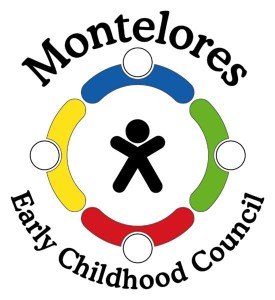Article by Casie LaMunyon
Social-Emotional Intelligence describes a child’s ability to establish emotional connections with others and the ability to understand their own emotions. Recent research on brain development shows that our children’s ability to connect with others, manage their emotions, cooperate with others, and sustain attention is formed through his or her relationships with parents and other caregivers. Through your child’s relationship with you he learns about himself and others. When your child sees you helping her, understanding how she feels, and enjoying time with her, she will approach the world with openness and enthusiasm, and she will grow to be a responsive and caring person. There are several skills basic to social and emotional learning. They include: managing our feelings, controlling our anger, having empathy for others and having healthy relationships with friends and family.
There are many steps you can take to help your child develop these skills. Take the time to touch, hold, and hug your child every day. Recent research on brain development in young children has shown that touch, and eye contact, strengthen important connections in the brain. When we touch our children hormones are released that are essential to brain development. Include loving touch and eye contact in your play and daily routines with your child.
Help them learn to describe their own emotions. When your child is upset describe his emotions, “It looks like you are real frustrated that we have to leave the party.” Accepting his feelings, without minimizing them or making fun, also increases the chances that he will continue to share his feelings with you as he grows older. Rather than dismissing the child’s feelings, parents can make a habit of naming emotions as readily as they name objects, thereby helping children increase their feelings vocabulary. Knowing you respect his feelings teaches your child empathy and respect for others, which are important elements in any relationship.
Teach children acceptable ways to vent anger by showing them how you manage your anger. Watching the way a parent models a behavior is the strongest way children learn. If a parent calms down when they are upset before they act – or at least talks openly to children about losing their control if they do – this strengthens a pattern in the child of first stopping and calming down, then thinking about their response, and finally picking the best one and trying it. Label your own feelings, “I am happy because you helped me clean up,” or, “I am sad that grandma had to fly home.” It is important for children to know that you have feelings too, and that there are ways to cope with them.
It is also important to limit the time your child spends in front of a screen. Television, movies, and computer games take time away from hanging out together—and time away from children playing, solving problems, interacting, and actively learning about the world around them. Child’s play is more than just fun and games. It is closely linked to children’s intellectual, social, emotional, and physical progress. Decades of research clearly demonstrate that active childhood play—especially the social, “let’s pretend” play children do with others—boosts healthy development across a broad spectrum of critical areas. Through play, children learn to interact with others, to recognize and solve problems, and to feel the sense of mastery that results. Play helps children make sense of and find their own place in the physical and social world. Research suggests that social make-believe play is related to increases in collaboration, cooperation, empathy, and impulse control, reduced aggression, and better overall emotional and social adjustment.
By taking time each day to hug, play, and talk with your child you will give him or her tools to have healthy relationships with people for many years to come.
Casie LaMunyon is an Early Childhood Mental Health Specialist with Axis Health System. The Early Childhood Mental Health Program provides screenings and counseling for young children, as well as consultation and training for community members and child care providers.




Connect With Us!